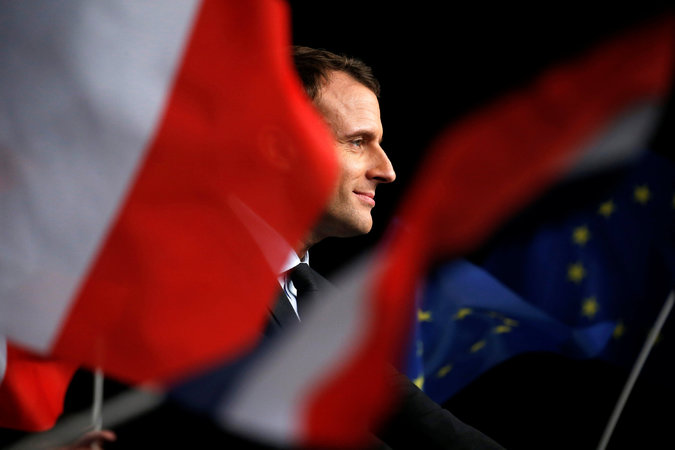Paris — France seems ready to vent the slow-ripening anger in an election that could see the extreme right return to power for the first time since the 1940s and Europe revert to a turbulence not seen since that epoch.
If Marine Le Pen of the National Front wins, she says she will take France out of the euro, the shared European currency, and restore the franc. This would constitute an economic and political rupture so violent that even Britain’s vote to leave the union would pale beside it.
A Le Pen victory is far from assured, plausible if not probable. Returning to France late last month, I was struck by how much Le Pen’s party has joined the mainstream. The pattern that has prevailed throughout the Fifth Republic seems dead. The French are tired of increasingly indistinguishable Socialist and Republican presidents.
The first round of voting on April 23 is almost certain to send Le Pen and Emmanuel Macron, upstart leader of a new catchall centrist movement, into the runoff on May 7: the xenophobic nationalist versus the pro-Europe neophyte.
Polls show them both with clear, if tightening, leads over the scandal-plagued Republican candidate, François Fillon, and an extreme leftist, Jean-Luc Mélenchon, of the Unbowed France movement, whose support has surged in recent days. The left, still singing the Internationale and plotting class struggle, is in disarray. The inclination to blow up the system has found fertile ground.
Such end-of-days gloom is puzzling. Near 10 percent unemployment and near invisible growth cannot explain it. French infrastructure is a rebuke to American decay. French universal health care works. Savoir-vivre, the art of living, is not a French phrase for nothing. From the United States to China, the French hold on the world’s imagination endures. It is a land of unique pleasures.
Yet this seems to offer scant comfort. Instead the French are focused on their country’s failures: its dispatch under Vichy of Jews to their deaths, its painful colonial past in Algeria, its faltering attempts to integrate one of Europe’s largest Muslim communities, its vulnerability to terrorist attacks in Paris and Nice, its expensive and sometimes rigid welfare state, its ambiguous relationship to global capitalism, its fraying model of “laïcité” (or secularism) designed to subsume religious difference in the values of the French republic — all are endlessly agonized over.
“There is a certain French masochism,” Pascal Bruckner, an author, told me.
This sense of dispossession, of loss, is what the National Front has exploited: loss of identity, jobs, national borders; loss of faith in a corrupt political system. “On est chez nous!” — roughly “We are at home!” — is the party’s strange battle cry, chanted at every rally. But why such pathological need to reaffirm belonging, and who exactly are “we”?
“There is no right or left. This election is about patriotism versus globalization,” Nicolas Bay, the secretary-general of the National Front, told me. “That is why we would end immigration. If it’s Le Pen against the globalist Macron in the second round, it will be clear what the contest is about: Do we defend the nation, or is the nation finished?”
Macron is a former banker and economy minister under Hollande. Small, with glittering blue eyes, his pitch is that he’s a tech-friendly pragmatist with the ability to revitalize France. Nobody quite knows what’s in his gut. To fans he’s a doer; to critics he’s a hedger of bets. But nobody can deny his remarkable surge.
The New York Times
